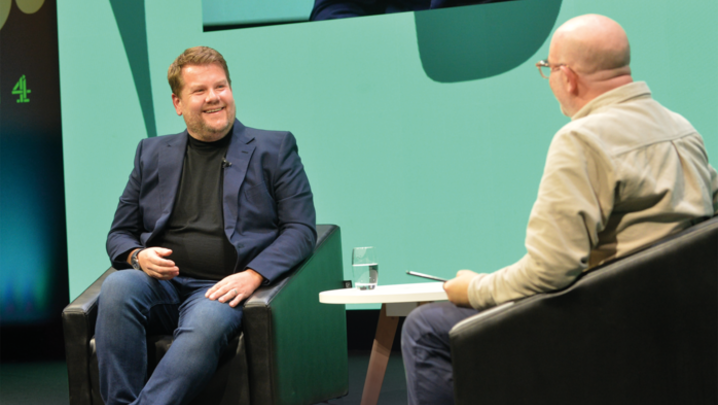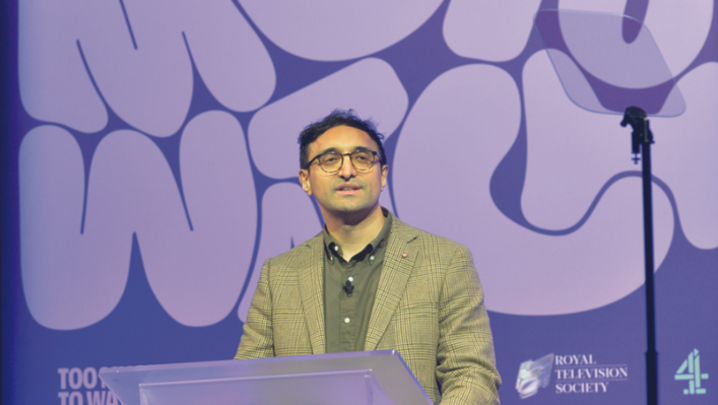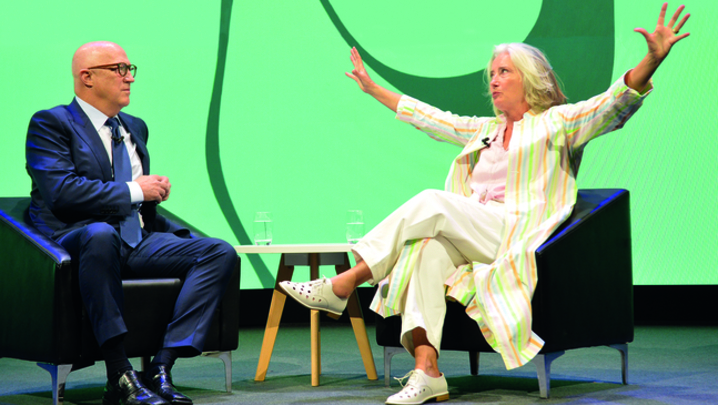BBC director of nations Rhodri Talfan Davies tells the RTS how the broadcaster’s ‘Across the UK’ strategy will work in practice
It is regarded as the BBC’s biggest transformation in decades, as the corporation prepares to further shift its centre of gravity away from London in favour of the likes of Birmingham and Newcastle.
In March, Director-General Tim Davie pledged to better reflect the UK’s nations and regions by moving expenditure amounting to £700m by March 2028 and hundreds of jobs outside the capital as part of a new “Across the UK” strategy.
Earlier this month, the RTS interviewed the executive at the sharp end of this policy, director of nations Rhodri Talfan Davies, who took up the role in January. Davies is also director of BBC Cymru Wales and sits on the BBC’s Executive Committee.
He told his interviewer, Sky News’s Gillian Joseph, that, while the BBC had in recent years boosted its production presence in places such as Bristol, Cardiff, Glasgow and Salford, the scale of this latest move aimed at providing better services for all licence-fee payers was of a different order.
When he joined the BBC in 1993, around 90% of network TV was made in London, and the nations and regions felt marginalised. “Since then, things have changed dramatically,” Davies insisted. The new plan involved “getting much closer to communities across all four nations”, “feeling utterly rooted in those communities” and “telling their stories”. The latter was something that global media giants such as Netflix did not do.
As part of the move towards further decentralisation, for example, news teams specialising in climate and science would move from London to Cardiff, while those specialising in technology would relocate to Glasgow.
In TV, the objective was to shift 60% of all network budgets outside London, with more than 200 scripted shows to be produced out of the metropolis within the next three years. In Scotland, Wales and Northern Ireland, the aim was to make a combined total of 20 dramas and comedies within the same time frame.
“These are big, measurable changes that will change the tone and flavour of the BBC,” promised Davies. “It is about changing what we see on air. There was no sense in having all our TV news specialists based in London.”
He said the success of BBC One’s six-part drama The Pact, shot mostly in south Wales, demonstrated the appetite for authentic depictions of parts of the UK that were neither English or metropolitan. He added: “We want to do more of this and to be able to look at the BBC in three years and feel this is a BBC that is embracing talent across scripted and unscripted, and communities in every part of the UK.”
Davies gave Breakfast News, based in Salford, as an example of a show that added a different flavour to BBC News.
As more programmes were based outside London, Davies said there would be a mix of recruiting locally and moving staff from London. He conceded that the latter involved “very personal choices” and that, initially, some employees might commute from their present homes to the new locations.
The Director-General, under pressure from the Government, whose ministers have criticised the BBC for “its narrow, urban outlook”, has promised to do more for those licence payers outside London who feel they receive less value for their money than those who live in the capital.
“In areas such as the North East, audiences can feel more distant from the BBC,” Davies acknowledged. To help correct this, plans are being made to launch new TV soaps based in northern England and in one of the three devolved nations.
'When you get authentic regional portrayal right, it tends to work across the UK. Audiences love series that have a real sense of place'
In terms of money being redeployed outside London, the nations director said that the bulk of this would be spent in England, especially in the West Midlands and the North.
“For the first time, we’ve put clear measures on the number of projects we want to deliver,” he emphasised.
So how would the BBC ensure these were felt right across the length and breadth of the UK? “There is no secret sauce here. Having spent 10 years running BBC Wales, north Wales felt very distant from Cardiff. Whatever level you go to, there is always someone who feels the level of distribution is not far enough.”
Expect more local radio programming in Bradford, Sunderland and Wolverhampton and other places, and collaborations with local indies and institutions such as Sunderland University in the North East.
“We need a holistic plan [in the North East],” said Davies. “There’s enormous creative talent in the North East and we’re missing out on that if we don’t work with partners to see that region reflected on screen.”
Regarding plans for a more bespoke BBC One to reflect the North, the first step was to get the channel up and running in HD locally. The next was to introduce more regional continuity announcers and more of a Northern editorial focus in production.
He denied, however, that the move towards decentralising – with power as well as people shifting from London – was a response to the Government’s “levelling up” agenda.
Commissioning teams outside London would benefit from having a much bigger say in network projects in order to reflect the nations and regions. He cited the success of The Pact again, and that of Keeping Faith, also produced in Wales, and the 2019 drama Guilt, commissioned by the BBC Scotland channel.
“When you get authentic regional portrayal right, it tends to work across the UK. Audiences love series that have a real sense of place,” Davies said.
Conversely, there have been many critics of the BBC’s decision last year to axe the long-running regional current affairs programme Inside Out. Wasn’t this counter to getting closer to audiences outside London? “That was a really tough decision… I am not here to pretend that was the ideal solution.…The whole BBC faced a financial reality. Every part of the BBC had to make cost reductions,” replied Davies.
One way to drill down locally was to boost the BBC’s online journalism, particularly in those English towns overlooked by mainstream media. “At the moment, this is UK-first, then go and find your local,” he noted.
Turning to the all-important issue of public trust in BBC reporting, Joseph wondered whether the BBC’s journalistic reputation had been damaged by Lord Dyson’s report into how Martin Bashir obtained his 1995 Panorama interview with Diana, Princess of Wales.
“It was a grim read… but I don’t for a moment feel that that particular series of mistakes reflects or represents the journalistic integrity that I see every day from my BBC colleagues,” said Davies. “Audiences don’t conflate that one incident with their general regard for BBC journalism.”
Would the episode be used by the Government as a stick to beat the BBC in the future? “Clearly, there are conversations around licence-fee funding and governance that routinely take place between the corporation and government.
“If we look at this objectively, this is the BBC commissioning a report that gets to the truth.… You’ve got to remember that, every second of every day, on average about 5 million people tune in to the BBC and they come to us because they trust us.”
Report by Steve Clarke. Rhodri Talfan Davies was in conversation with Sky News presenter Gillian Joseph for the RTS on 3 June. The producer was Chris Jackson.







